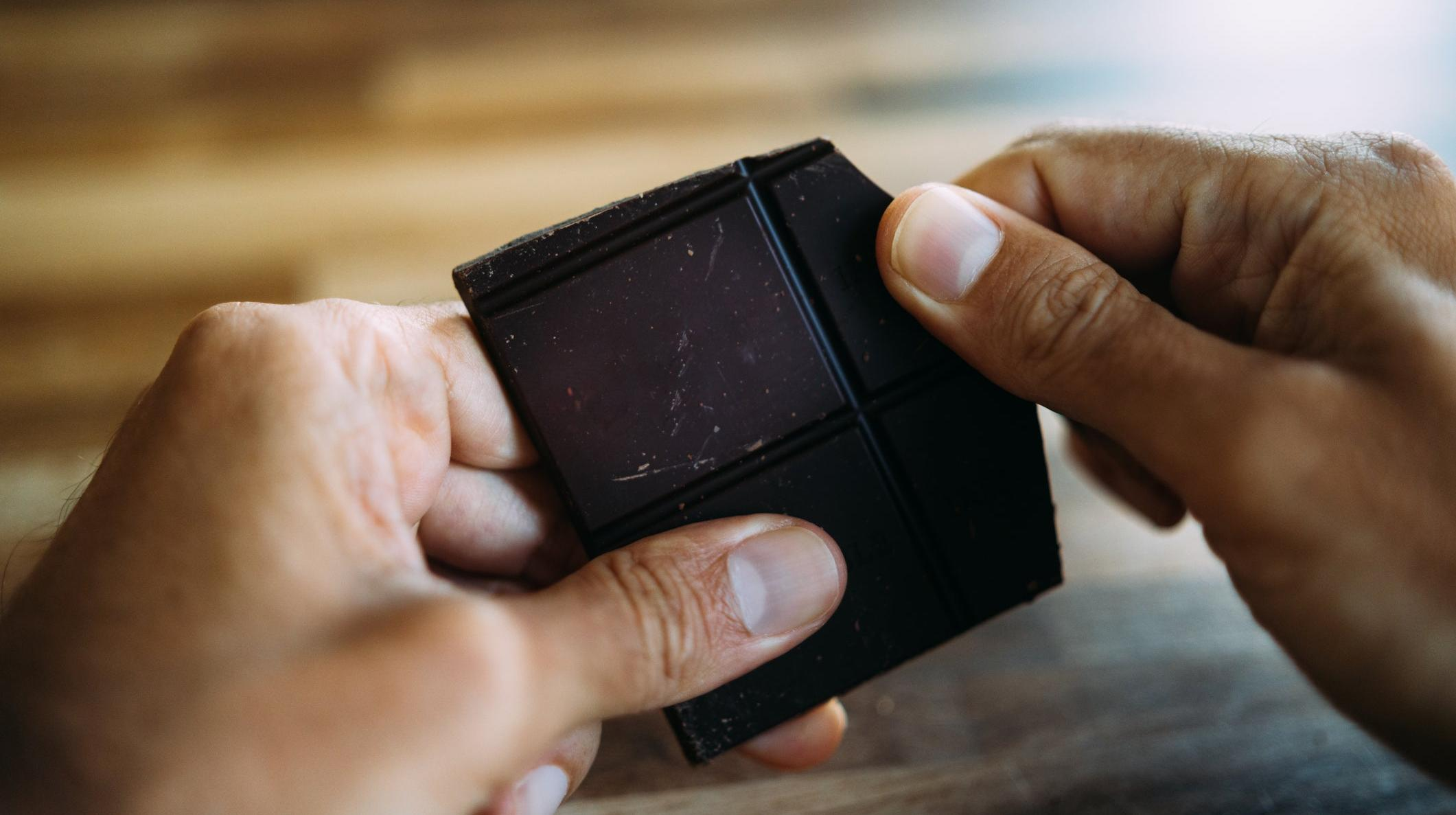Cocoa-Free "Chocolate" Created In Lab Tastes Just Like The Real Thing
Could this engineered chocolate fix everything wrong with the chocolate industry?
QOA is a Germany-based startup that specializes in chocolate. Well, sort of. The company makes a chocolate substitute without actual cocoa involved, using what it calls "precision fermentation" of other ingredients to match the flavor profile of chocolate. Fast Company reports that the company aims to eliminate two side effects of the chocolate industry: child labor and the adverse effect cacao farming has on the environment.
Chocolate has long been a problematic industry rife with child labor problems, and despite promising to end the practice, many brands still haven't been able to resolve the issue. Additionally, rainforests have been ravaged by the cultivation of cocoa; the Ivory Coast alone has lost more than 80% of its forest to the crop.
Food scientist Sara Marquart is one of the cofounders of QOA, along with her brother, an entrepreneur. Per Fast Company, Marquart and a small team of scientists studied the unique properties of cocoa, sifting through which flavors make it so special.
"Pretty much every food has a fingerprint, like a human has a fingerprint, right? It's very unique," Marquart said. "We analyze the fingerprint of raw cocoa, fermented cocoa, roasted cocoa, to understand what is making cocoa this unique little bean that has so much flavor?"
The team also analyzed byproducts of food processing, like leftover residues of sunflower seed pressings for oil. By fermenting these ingredients, they were able to "extract the building blocks of the flavor."
"And then we reassemble that in a big brewing tank," Marquart said. "You can think of it like beer brewing, in a way." After the fermentation process, the material is roasted and dried just like raw cocoa and can then be used in the same process as chocolate making.
Of course, the flavors weren't great right off the bat. One of the team's first attempts garnered some really low scores, like a 4.9 out of 10. But after improvements to the formula, ratings picked up significantly. Their final test went to a research organization called Fraunhofer, whose sensory experts couldn't tell the difference between the faux chocolate and the real stuff. So they launched the product.
The big plan is to use the "chocolate" in mass-market candy products. If the chocolate substitute is made to scale, not only does it shrink the carbon footprint of chocolate, but it could prove less expensive than the real thing, too. QOA isn't aiming to replace the sustainably farmed single-origin stuff, but it does hope to reduce the harmful effects of large-scale farming. The company also aims to launch its own brand to raise awareness of child slavery in chocolate.
"We love chocolate, we love cocoa, and we love the product that is produced in a sustainable and just way by small-stake farmers," says Marquart. "The only problem is that it's not a scalable approach to make chocolate for the global consumption of chocolate. We're just wanting to offer a solution for mass market chocolate that we can skip the CO2 footprint and the child slavery."
Now I'm super curious. Substitute ingredients have always fascinated me, and knowing that a panel of experts couldn't even tell the difference is intriguing. We'll be keeping an eye out. Who knows—maybe this new product can even take the edge off a Hershey's bar.
